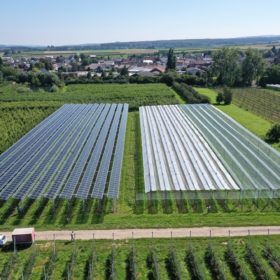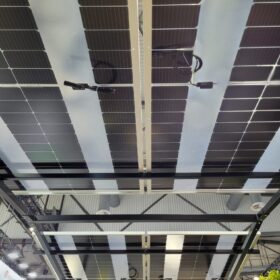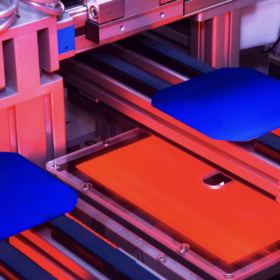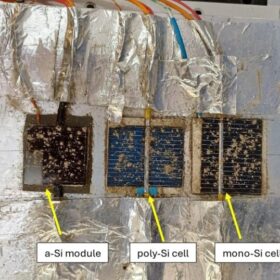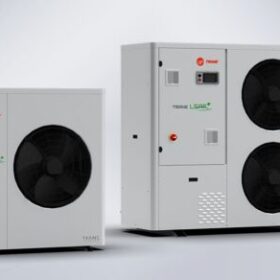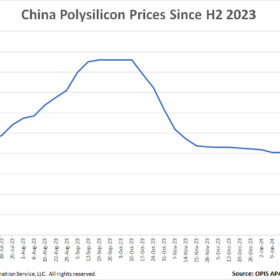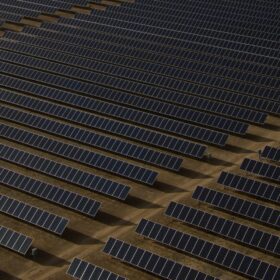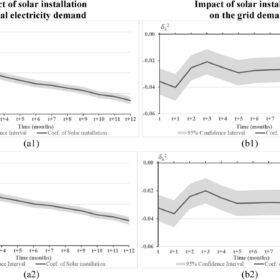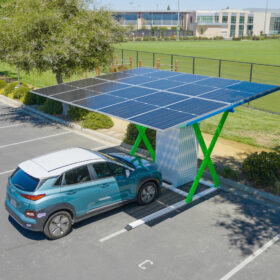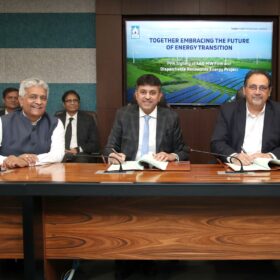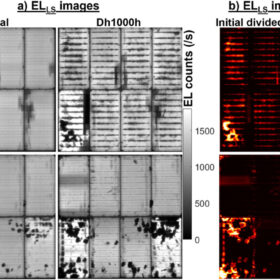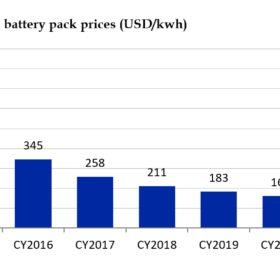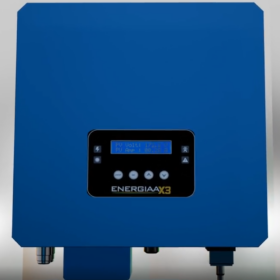Research finds agrivoltaics have payback time of less than five years in Portugal
A group of researchers from the University of Lisboa and the Military Academy reported on the viability of agrivoltaics in Portugal. It found that spaced rows of PV modules combined with shadow-friendly crops had the most promising return and a payback period of less than five years.
France’s Feedgy unveils semi-transparent HJT modules for agrivoltaics
Feedgy’s new modules feature 96 heterojunction (HJT) cells and are available in five power ratings, from 300 Wp to 320 Wp, with a transparency of 39%. The panels can be used for gardening, arboriculture and floriculture.
CubicPV halts plans for US solar silicon wafer factory
CubicPV has halted its plans to build a US solar silicon wafer factory, as it has shifted its focus to producing perovskite tandem modules.
The effect of extreme dust conditions on PV system performance
Scientists in Romania have found that extreme dust conditions may cause losses of 45.35% and 38.14% in maximum power and short-circuit current under outdoor conditions for different kinds of solar modules. They warned that, if the effects of climate change escalate, resulting in less rainfall and more frequent sandstorm events originating from the Saharan region, extreme scenarios are very likely to occur in Europe.
Trane debuts air-to-water heat pumps
The new products use propane (R290) as a refrigerant and have heating and cooling capacities ranging from 8 kW to 30 kW.
China polysilicon prices gain for the first time in 2024
In a new weekly update for pv magazine, OPIS, a Dow Jones company, provides a quick look at the main price trends in the global PV industry.
Climate change mitigation: Embracing transparency, speed, and zero cost
Emerging technologies are enabling transparency, speed, and affordability across climate mitigation. Blockchain platforms like Poseidon impart radical transparency regarding carbon credits’ origins and impacts, resolving offset greenwashing issues.
Global solar corporate funding up 42% in 2023
Investors and developers raised more than $34.3 billion in 160 deals last year, according to a new report by Mercom Capital.
The solar rebound effect in residential PV
The rebound effect consists of a reduction in expected gains from a more resource-efficient technology as a result of behavioral or systemic change. An international research team has investigated this phenomenon in the residential PV segment in Vietnam and has found that it could happen in any country where the policy supporting solar power is not fully and scientifically explained.
Off-grid solar EV charging system designed for quick installation
The PairTree pff-grid solar charging system for electric vehicles (EVs) combines bifacial solar panels ranging from 4.6 kW to 5 kW, a 42.4 kWh capacity storage system, and one or two AC “Level 2” EV chargers.
